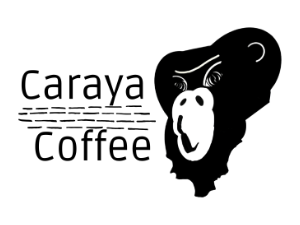Cooperative
Headline
We work with cooperatives because they enable many small producers to export their coffee. In rural areas with smallholder structures, cooperatives act as a mouthpiece and also have a quality assurance function. For example, there are regular, mandatory training courses for the producers. Equipment for processing the coffee is also provided by the cooperative.
Fair payment: we pay the cooperative a FOB price of at least 6.18$ / kg up to 9.48$ / kg depending on the amount of work and quality. This is double the "Fairtrade" minimum price. We do this because we think people should really be paid fairly regardless of the stock market. Because even the Fairtrade seal is dependent on the stock market. For more on "Fair Trade" and how it differs from "Direct Trade", check out our blog article. We are a Direct Trade roastery and pay fair in the process.
We work together with ASOCAFE in Taqipiplaya. We are in touch all year round with Marco, who is responsible for communications and quality management. Still we manage to go to Bolivia at least once a year to be in touch personally with the members of the cooperative as well, which counts approximately 300 producers.
Furthermore, through our network, we've established contacts to independent producers who cultivate their coffee with a lot of scientific knowledge on so called microlots. Those coffees do have a higher cupping score than the ones of the cooperative. Because of the small amounts of those coffees we mainly offer them B2B and as green coffee, please feel free to contact us here.



Headline
Coffee is incredibly versatile. We like coffee from different countries of origin - Kenya, Mexico, Ethiopia, Honduras - and yet with Caraya Coffee we have focused on just one country of origin: Bolivia. Why?
We are a small company, and we have strong roots in Bolivia. If you haven't already, you can read a bit about our origins here. The idea at the beginning of Caraya Coffee was:
● Make a sustainable difference in coffee through trade relationships.
● Communicate at eye level with coffee producers.
● Create a common space for exchange
Coffee is incredibly versatile. We like coffee from different countries of origin - Kenya, Mexico, Ethiopia, Honduras - and yet with Caraya Coffee we have focused on just one country of origin: Bolivia. Why?
We are a small company, and we have strong roots in Bolivia. If you haven't already, you can read a bit about our origins here. The idea at the beginning of Caraya Coffee was:
● Make a sustainable difference in coffee through trade relationships.
● Communicate at eye level with coffee producers.
● Create a common space for exchange

Significance of coffee in Bolivia
Historically, Bolivia does not yet have an established coffee culture. In the country itself, Nescafé or "café torrado" is mostly consumed. This is coffee roasted with sugar. In general, however, teas are more popular. Be it herbal teas, like mint or lemongrass from the own garden, or "Sultana". Sultana tastes like fruit tea and is the dried husk of the coffee cherries, which is no longer needed for the further processing of coffee. Coca, too, has a particularly long tradition in Bolivia. The coca plant contains healing and pain-relieving oils. Unfortunately, cocaine is also produced from it abroad - the greatest demand comes from the USA and Europe. For coca, farmers often receive many times the price of coffee. The plant is also much easier to grow than coffee because it is more resistant to pests. We don't see the problem in Bolivia, but in countries where drugs are consumed. Nevertheless, farmers who have been growing the plant for generations are increasingly becoming victims of corruption, environmental and health damage as a result. In order to be independent from the global drug market, we want to offer an economic alternative that is really profitable for the farmers: specialty coffee. Our coffee is not the answer to all questions, but it is a huge step in the right direction.

